Meet the Team
Meet the team behind TEDS and find out more about the research going on at TEDS.
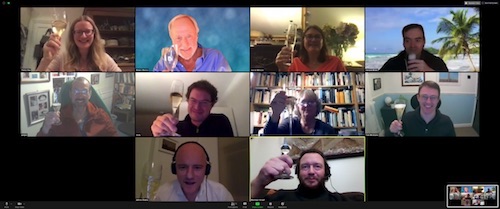
Celebrating 5 more years of TEDS!
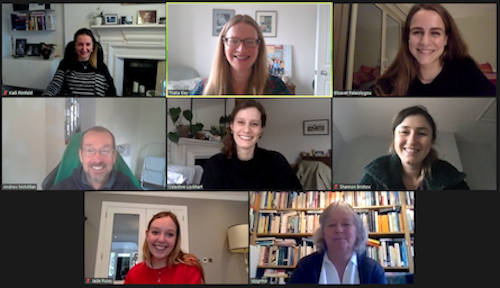
The TEDS Team
Past Director of TEDS
Professor Robert Plomin

For 50 years, I have studied genetic and environmental influences on psychological development. When I came to the UK from the US in 1994, I decided that what was needed was a large, systematic study of psychological development in twins beginning in infancy. With incredible co-operation from families of twins and continuous funding from the UK Medical Research for 25 years, TEDS has made some of the most important and surprising discoveries about the origins of individual differences in psychological development. TEDS has become even more valuable by integrating the classical twin design with the DNA revolution. These findings and their implications are described in overview in my book, Blueprint (Penguin, 2019) and in a 2020 interview with Sam Harris’ Making Sense podcast.
Director of TEDS
Professor Thalia Eley

I would like to begin by thanking the TEDS twins and their families for all their time and effort without which the unique science we do simply would not be possible. I am really looking forward to working more closely with you all as I move into the role of Director. I am really excited about this next stage of TEDS, where we are increasing the focus on mental health. I have always been fascinated by how and why people react so differently to stress. This is particularly important in the mid-twenties as this is a time when many people first begin to experience mental health problems. I am keen to find out whether genetic differences are useful in trying to improve people’s lives. For example, one major theme in my group is using genetic information to help understand which type of treatment works for whom, in the hope that people can get the right treatment for them more quickly in the future. I am also thrilled that we are now meeting the third generation of the TEDS families, and that we already have over 500 families taking part in the Children of TEDS or CoTEDS study.
We regularly update the website to make it easy for other researchers to find out about the study so that we can make the best possible use of the data that has been collected in the past 25 years. We hope you can find everything you want to know, but if not, please get in touch on teds-project@kcl.ac.uk.
Read more about Prof Thalia Eley here. Follow her on Twitter @thaliaeley.
TEDS Project Team
Rachel Ogden

I have been working with TEDS since our participants were 7 years old. I was recruited to help with the large scale data collection that took place over the phone and I have taken part in many other phases of data collection over the years. My role now is to help plan studies and coordinate communication with our participants. We are fortunate to have so many active TEDS families helping with our research and it has been a great pleasure to follow the twins’ development into adulthood.
Andrew McMillan

I joined TEDS at the end of 2001, during the age 7 twin telephone study, and have been the Data Manager since then. My work involves managing our admin database, where we record what happens to every family in each of our studies. I also handle all the data that are returned in questionnaires and web studies, documenting them and converting them to a suitable form for our researchers to analyse
Louise Webster

Louise joined TEDS in August 1996 as a research support worker. She manages TEDS finances and many administrative aspects of the study including recruitment of staff, preparing grant applications and monitoring publications. Louise has extensive administrative, historical and procedural knowledge of the study.
Shannon Bristow

I have been working with the TEDS team for just over a year, preparing for the proposed medical records linkage project. It’s been a pleasure to get in contact with many of our twins to gain their views on our proposed next steps for TEDS. This project is particularly important to me as my research interests focus on anxiety and depression and the links between physical and mental health. I hope to speak to more of you over the coming months and please keep an eye out for any correspondence from us relating to medical record linkage.
Celestine Lockhart
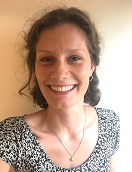
I joined the TEDS team in February 2021 as a Research Assistant. Since joining, I have helped to prepare and launch the newest phase of TEDS – TEDS26! I am interested in how genetic and environmental factors influence anxiety within families, in particular how family processes can shape children’s mental health. Before joining the TEDS team, I completed my BSc in Psychology at Goldsmiths, University of London.
Dr Elham Assary

I joined the TEDS team in February 2022 as a postdoctoral research associate. My research utilises the twin method as well as DNA data to examine how both genes and the environment influence the development of mental health problems and resilience to it. My latest project used the data from MZ twins and their DNA to investigate the genetic factors that are associated with greater within-trait twin differences for a range of mental health outcomes. I will be using TEDS data to examine questions relating to the trajectory of mental health problems and how genetic and environmental factors may influence these trajectories.
Dr Geneviève Morneau-Vaillancourt

I recently joined TEDS team as a postdoctoral research fellow after completing my PhD in psychology at Université Laval, Canada. I am interested in understanding why some children and adolescents consistently suffer from anxiety over the years. My research investigates how genetic and environmental factors may exacerbate anxiety over time. For instance, I am particularly interested in documenting whether the genetic factors that increase risk for anxiety also increase the likelihood of being victimized by peers, which in turn may exacerbate youths’ anxiety over the years.
Dr Olakunle Oginni

I joined the TEDS team as a postdoctoral researcher in January and will be using TEDS data to investigate the associations between mental and physical health and lifestyle behaviour; and the extents to which these associations are independent of correlated genetic and environmental influences. I trained as a psychiatrist in Nigeria and did an MSc (Genes, Environment and Development) and PhD (Behavioural Genetics) at the SGDP.
CoTEDS Project Team
Dr Tom McAdams
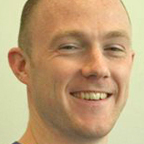
I am interested in how and why cognitive, emotional, and behavioural traits run in families. It has been shown that children resemble their parents not only physically but also in terms of their intelligence, their behaviour, and on many psychological traits. These parent-child associations may arise because parents have a direct impact on the way that their children develop. However, almost all traits are under some degree of genetic influence so these parent-child associations could also arise because children share 50% of their DNA. For example, intelligent parents may rear intelligent children because A) they adopt parenting practices that nurture the development of intelligence in their children, and/or B) intelligent children may inherit a genetic propensity towards intelligence from their intelligent parents. My research is aimed at disentangling the role of the rearing environment from that of genetic transmission, and one particularly powerful way to do this is through the study of twins who have children.
I am therefore very excited that over the next few years we will be setting up the Children of TEDS study (CoTEDS). In this new study we will track the development of the CoTEDS children just as the development of the TEDS twins has been tracked. This time however, there will be an added focus on the role of the parent in child development. This will be the first study of it’s kind, where a sample of twins and their children have both been assessed and their development followed from an early age. This will provide us with a completely unique and powerful research resource. Using data from CoTEDS we will be able to address some age-old questions about the role of the parent in child development.
Dr Yasmin Ahmadzadeh

My research is focussed on understanding how common mental health problems run in families. I joined the TEDS team in 2015, as a Research Assistant working to set up the Children of TEDS (CoTEDS) project. I completed my PhD part-time alongside that role, supervised by Dr McAdams and Prof Eley. I am now a postdoctoral researcher in the group, where I continue to help run the CoTEDS project. Prior to working with TEDS I completed my BSc in Neuroscience from the University of Manchester.
Joanna Bright

I completed my BSc in Neuroscience and Psychology at the University of Manchester, and then spent 2 years working on brain imaging research at the University of Southern California, Los Angeles. I've now moved to London to work as a Research Assistant for the CoTEDS project alongside Dr Ahmadzadeh and Dr McAdams. I am interested in how parenting behaviours impact the development of behavioural problems in children and adolescence and so I'm excited to be working with CoTEDS to grow our research to incorporate the parenting experiences of TEDS twins. I am planning to start my PhD this summer with the TEDS/CoTEDS team, investigating intergenerational transmission of genetic and environmental risk for externalising behaviours.
Current PhD Students
Elisavet Palaiologou

I joined the TEDS team as a 1+3 student (MSc+PhD) in September 2020, after completing my BSc in Psychology at the University of Surrey. I completed my MSc in Developmental Psychology and Psychopathology at King’s College London and I started my PhD in September 2021 at the Social, Genetic and Developmental Psychiatry Centre (SGDP). For my PhD, I am interesting in investigating the role of genetic and environmental factors in the developmental heterogeneity of depression and anxiety. To do so, she is using a range of methods including growth curve and predictive modelling, the twin design, as well as longitudinal analyses.
Francesca Procopio
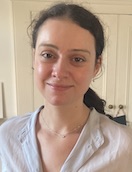
I completed my BSc in Psychology at Queen Mary University of London and after a couple of years away from academia, I conducted my MSc in Developmental Psychology and Psychopathology at the Social, Genetic and Developmental Psychiatry Centre. My thesis investigated the influence of specialist genes in mathematical, language and reading ability in 12-year-old twins. For my PhD, I am interested in extending upon my MSc thesis and will be using both genetic and genomic approaches to investigate the genetic specificity of cognitive traits independent from the influence of generalist genes.
Placement Students
- Aliyah Kassam - 2023-2024
- Sherry Peng (CoTEDS) - 2023-2024
- Thandeka Mukazi - 2022-2023
- Prabhleen Ghattoray (CoTEDS) - 2022-2023
- Mathumitha Sivabalan - 2021-2022
- Rishita Advani (CoTEDS) - 2021-2022
- Jade Pusey - 2020-2021
Past TEDS PhD students
- Dr Andrea Allegrini
- Dr Rosalind Arden
- Dr Kathryn Asbury
- Dr Ziada Ayorech
- Dr Lee Butcher
- Dr Rosa Cheesman
- Dr Oliver Davis
- Dr Corina Greven
- Dr Ken Hanscombe
- Dr Nicole Harlaar
- Professor Claire Haworth
- Dr Emma Hayiou-Thomas
- Professor Yulia Kovas
- Dr Eva Krapohl
- Dr Emma Meaburn
- Dr Bonny Oliver
- Dr Tom Price
- Dr Kaili Rimfeld
- Professor Angelica Ronald
- Dr Saskia Selzam
- Dr Nicholas Shakeshaft
- Dr Emily Smith-Woolley
- Dr Maciek Trzaskowski
- Professor Essi Viding
- Dr Sheila Walker